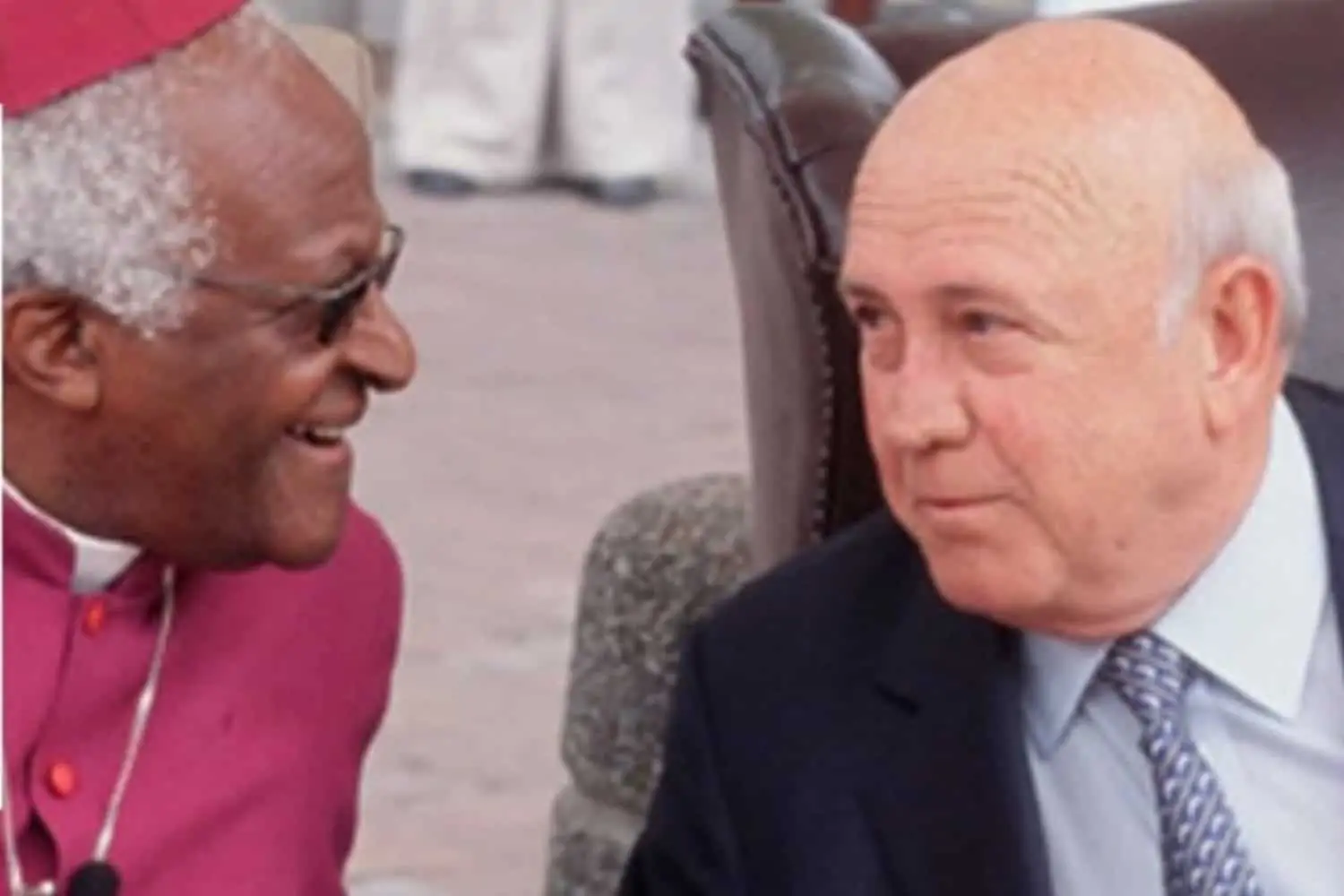The Desmond and Leah Tutu Foundation issued a polarising statement in reaction to the death of FW de Klerk.
Tutu Foundation pays tribute to De Klerk
The last apartheid president died at his Fresnaye home, in Cape Town, on Thursday after a lifelong battle with mesothelioma cancer.
“We send our condolences to the De Klerk family. It is never easy to lose a father,” Tutu Foundation CEO Piyushi Kotech wrote.
The foundation recognised De Klerk’s monumental efforts in ending apartheid, a segregatory system whose effects are still seen in modern South Africa.
“On 2 February 1990, De Klerk stunned South Africa and the world when he announced to Parliament that he was unbanning the African National Congress, the South African Communist Party, the Pan Africanist Congress and other liberation movements, and that he was releasing Nelson Mandela unconditionally. This led to a multiparty negotiation process that led to South Africa’s first democratic election in April 1994, and Mandela’s inauguration as president on 10 May that year,” the foundation recalled.
De Klerk is survived by his wife Elita, his children, Jan and Susan, and his grandchildren.
‘FW de Klerk missed many chances to reconcile with SA’
While De Klerk’s role in the advent of democracy is immortalised, “he was never able to acknowledge the full extent of apartheid’s evil.”
“As late as February 2020, he refused to acknowledge that apartheid was a crime against humanity, despite it being declared such by the United Nations in 1973,” the foundation pointed.
It is the last phase of his political life the Tutu Foundation has described as disappointing and “a part of history best forgotten.”
“The third phase of De Klerk’s career, however, was a disappointment, a return to form in which he made unconvincing denials of apartheid-era atrocities at the Truth and Reconciliation Comission, chaired by Archbishop Tutu. He also refused to acknowledge apartheid as an atrocious crime against humanity. He went on to become something of an apologist for apartheid on the global speaking circuit,” Kotecha said.
In his last message to South Africa, recorded before his passing, De Klerk acknowledged his active role in apartheid and admitted that, until the 1980s, he was a firm supporter of the separation development policy coined by the oppressive system’s chief architect Hendrik Verwoerd.
“It is true that in my younger years, I defended separate development as I never liked the word apartheid. I did so, when I was a member of Parliament and I did so as I became a member of Cabinet. On many occasions, I apologised for the pain and indignity that apartheid has brought to persons of colour in South Africa,” he lamented
De Klerk’s funeral arrangement have yet to be communicated by his foundation.
